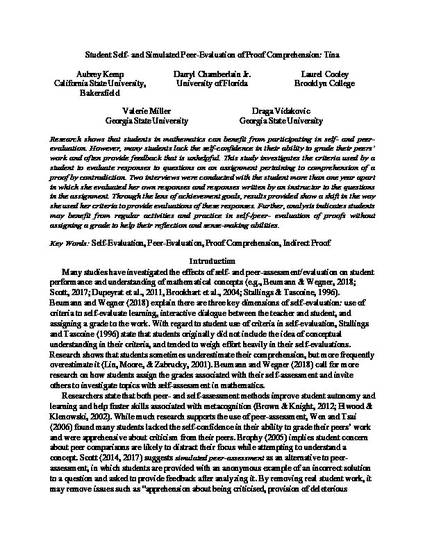
Article
Student self and simulated peer-evaluation of proof comprehension: Tina
23rd Annual Conference on Research in Undergraduate Mathematics Education
(2020)
Abstract
Research shows that students in mathematics can benefit from participating in self- and peer-evaluation. However, many students lack the self-confidence in their ability to grade their peers’ work and often provide feedback that is unhelpful. This study investigates the criteria used by a student to evaluate responses to questions on an assignment pertaining to comprehension of a proof by contradiction. Two interviews were conducted with the student more than one year apart in which she evaluated her own responses and responses written by an instructor to the questions in the assignment. Through the lens of achievement goals, results provided show a shift in the way she used her criteria to provide evaluations of these responses. Further, analysis indicates students may benefit from regular activities and practice in self-/peer- evaluation of proofs without assigning a grade to help their reflection and sense-making abilities.
Keywords
- Self-Evaluation,
- Peer-Evaluation,
- Proof Comprehension,
- Indirect Proof
Disciplines
Publication Date
February 29, 2020
Citation Information
Aubrey Kemp, Darryl Chamberlain, Laurel Cooley, Valerie Miller, et al.. "Student self and simulated peer-evaluation of proof comprehension: Tina" 23rd Annual Conference on Research in Undergraduate Mathematics Education (2020) Available at: http://works.bepress.com/darryl-chamberlain/12/
